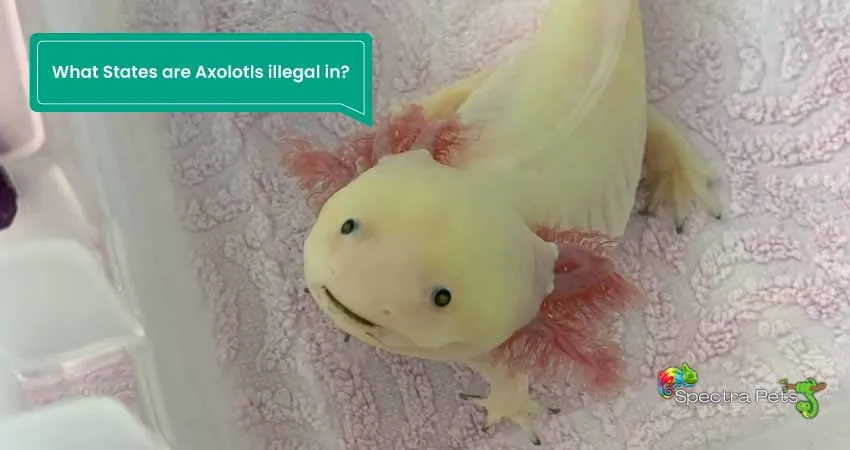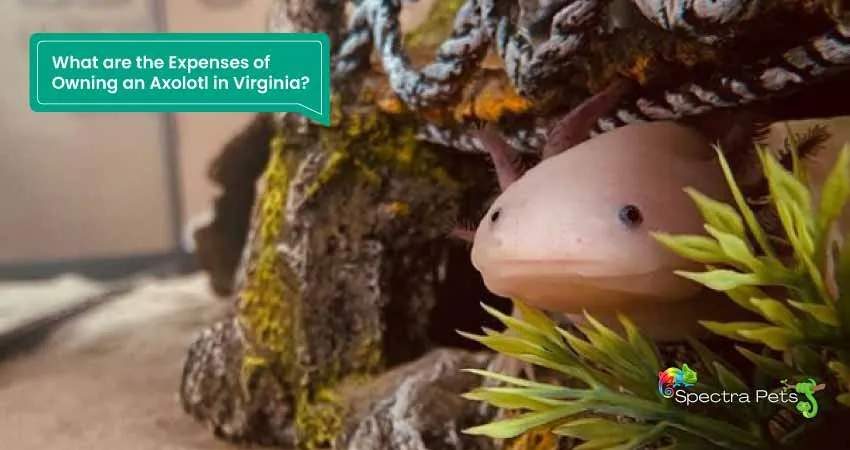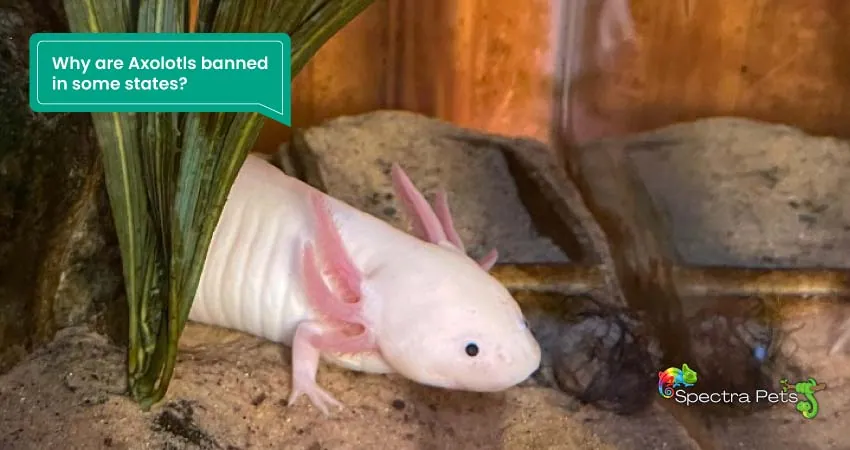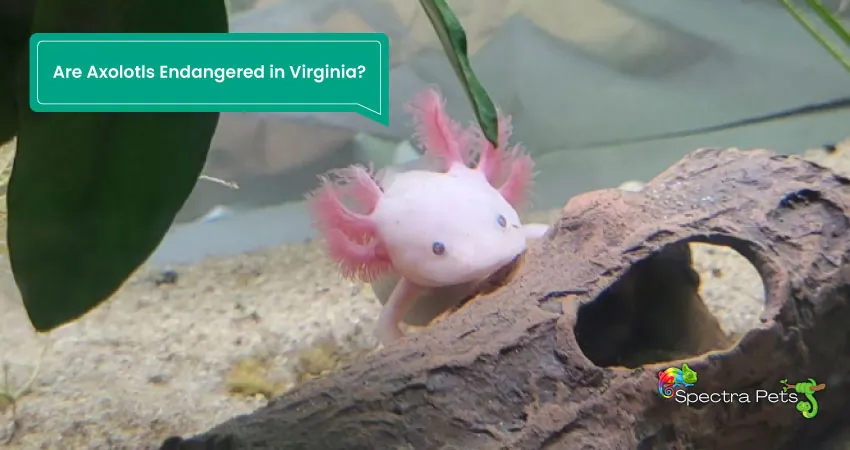As with the recent trend, you want to get a pet axolotl for your newly constructed marine aquarium. But, you also know that it has been outlawed by the government to own, import and export axolotls in many states. As you reside in Virginia, you may want to know if your state has such a ban as well.
There was an active ban on owning an Axolotl in the state of Virginia up until very recently. But, as of August 1, 2021, it is legal to import, export, sell, and possess Mexican axolotls in Virginia. You also do not need a permit to own one.
In this article, I will enlighten you on the current situation surrounding owning an axolotl legally. So let’s get into it!
What States are Axolotls illegal in?

In the U.S., it is illegal to own an axolotl in the following states:
- New Jersey
- California
- Maine
And a legal permit is required in the following states:
- Hawaii
- New Mexico
What are the Expenses of Owning an Axolotl in Virginia?

The cost of keeping an axolotl can be high. Here, I’ll give you a ballpark figure of what it might cost to keep an axolotl in Virginia:
Axolotls that have been mass-produced are available for as little as $35. The more exotic breeds, however, will set you back significantly more money. For some incredibly rare variations, some online retailers are even charging as much as $800. In addition to the animal purchase, you also need to account for the delivery fee. Typically, this is influenced by both your location and the merchant.
Additionally, you’ll need to purchase an aquarium. The less expensive models cost about $100. Nevertheless, if you want something more substantial and opulent, the price may rise quickly.
Axolotls cannot simply be placed in an aquarium filled with water. It is imperative to have a filtering system and some lighting. Both of them are going to cost you less than $80.
Additionally, you might want to add some decorations and additional live plants. Price-wise, they are fair. For just under $20, you can get a number of decorations.
You should set aside $250–300 for the setup of the tank alone. Then, on top of that, is the animal’s actual cost.
After that, upkeep will be your responsibility. You’re lucky, though, that feeding an axolotl is relatively cheap. The annual cost of food will be less than $100.
Last but not least, you might need to take your axolotl to a vet. These can be quite pricey. The majority of axolotls won’t require this treatment, though.
Why are Axolotls banned in some states?

Some states prohibit the possession of axolotls as pets, which locals might find confusing. Remember that the purpose of these laws was to justify the actions they prescribed.
It appears that over several generations, the genetic makeup of axolotls kept in captivity changes significantly to the point where they no longer resemble their wild counterparts. This prevents breeding and wild release of axolotls, preserving the unique characteristics of the species.
Axolotls also present a serious threat to the ecosystems in these states. The authorities are devoted to preventing the possibility of someone breeding axolotls in great quantities and dispersing them into the wild.
This is due to the fact that axolotls have the capacity to naturally breed with other salamander species, which could lead to the extinction of threatened species. Axolotls are not allowed in New Jersey because there is a chance that they could hybridize with the seriously endangered Tiger salamander. Because of this, the tiger salamander might go extinct.
Are Axolotls Endangered in Virginia?

Axolotls are categorized as “critically endangered” in the state of Virginia. According to the IUCN conservation index, they are an endangered species.
Wrapping Up
As a Virginia resident, you’re in luck! Now that the ban has been lifted, it is time to go get an axolotl for yourself! Let me know in the comments which variant you’ve got and your personal experience with it.
No legal advice or suggestions regarding the ownership of axolotls in Virginia or elsewhere are made in this article. It is crucial and imperative that you conduct your own research, draw your own conclusions, and get in touch with local authorities for more information about keeping pets in your state and with specific exotic species.
Related Articles:
